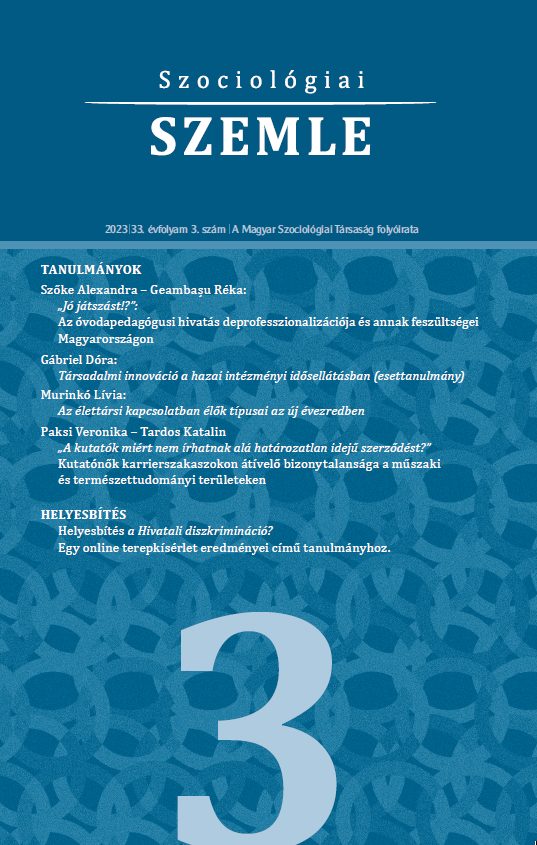Social innovation in social care in Hungary
Abstract
The study examines eldercare practices in a village and its social institutions located in the Northern Great Plain region. The analysis explores what type of social innovation can be identified in the village and in its care institution maintained by the municipality, under what conditions the initiative operates, and raises the question whether caring community can be called a social innovation. The social innovation literature tends to have a normative view declaring that innovations are closely linked to positive social change and creating a better quality of life. The critical view, however, does not look at innovation through a lens of economic efficiency, but states that social innovation must offer an alternative. The role of innovation in institutional eldercare is particularly relevant, as service users are often hampered in their daily activities, living alone, isolated from social contacts, dependent on family members or an institution, while the institutions themselves are not adequately flexible. The results of the qualitative research show that democratic leadership, recognition of the work of staff and a strong civil society are the driving forces for social innovation, where the contribution of different actors is inevitable.





